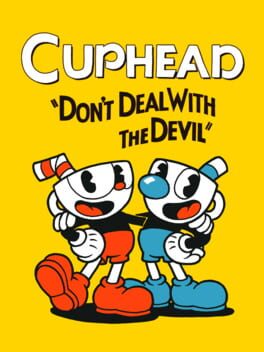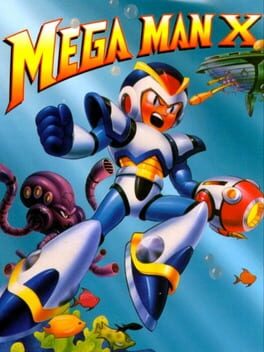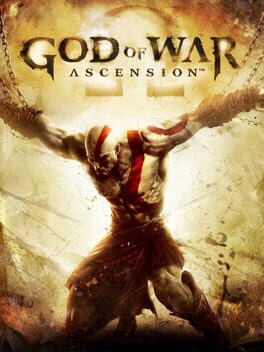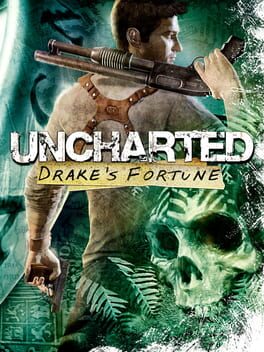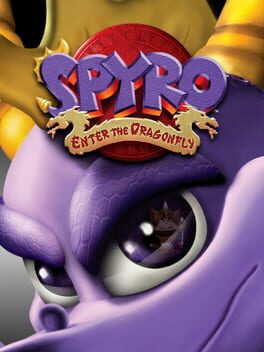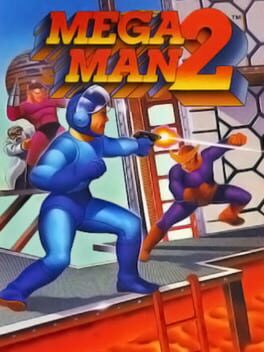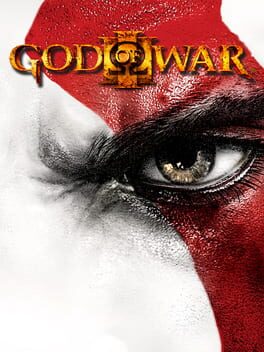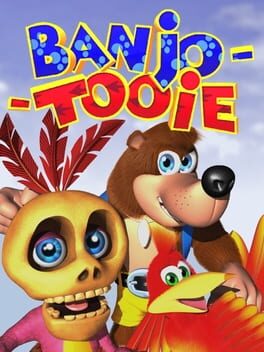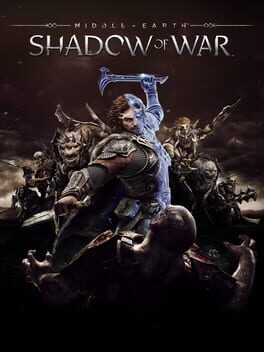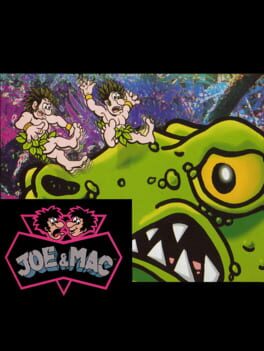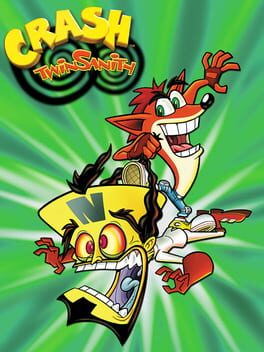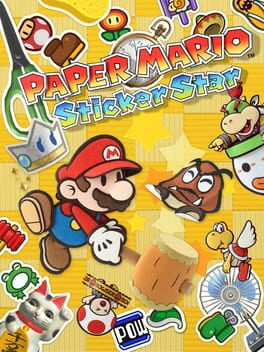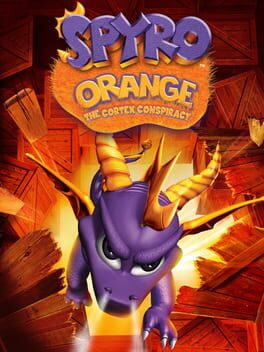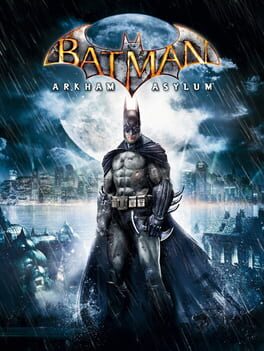RandomContent
2017
If someone says video games can't be art, show them this.
I won't shake any conventions by saying this, but Cuphead is gorgeous. So many animations, so much creativity, and countless references to classic cartoons; I love how this game pays homage to so much classic animation without ever feeling derivative, each beast the game creates still feels like its own thing. The game boasts excellent weapon variety and a near-perfect upward turn in both difficulty and quality as the adventure goes on. Sadly, I found Cuphead's core gameplay just basic and repetitive enough to hold the game back from a perfect score, but I'm still giving it five stars in the artwork department: All these same feelings apply to the DLC.
At one point, King Dice addresses you and says, "You mugs." I can't not love this game.
I won't shake any conventions by saying this, but Cuphead is gorgeous. So many animations, so much creativity, and countless references to classic cartoons; I love how this game pays homage to so much classic animation without ever feeling derivative, each beast the game creates still feels like its own thing. The game boasts excellent weapon variety and a near-perfect upward turn in both difficulty and quality as the adventure goes on. Sadly, I found Cuphead's core gameplay just basic and repetitive enough to hold the game back from a perfect score, but I'm still giving it five stars in the artwork department: All these same feelings apply to the DLC.
At one point, King Dice addresses you and says, "You mugs." I can't not love this game.
1993
They nailed it.
Make no mistake, I'm glad they continued making MegaMan X games after this (mostly just for 2 and 4), but they could have stopped here, and I'd have been completely content. The X series is the inverse of the original MegaMan series, which had a troubled start, but a lot of potential for improvement. Here, they hit it out of the park on the first try.
From the first frame of the game, MegaMan X hits you with stellar music, strong enemy design, and a revamped move set that feels loyal to classic MegaMan while adding just enough new mechanics to make X entirely its own thing. The player gains a sense of accomplishment from blasting through imposing enemies, but that is stripped away when you are easily defeated by Vile. His mech suit is a clever way to show he isn't using his full power, and being saved by Zero is reliving, but humbling. I remember playing this game for the first time and being hellbent to redeem myself after that humiliating loss. Honestly, I could devote the entire review just to the first level of the game, But I don't wish to imply the rest of the game falls short.
Every single enemy, boss, and level are distinct, fair, and look good even by today's standards. The upgrades in the game are all worth the effort to find, being well-hidden without being unreasonable. Trust me, you'll need every rewarding upgrade, varied boss weapon, and ounce of resolve to get through this game, as its infamy for high difficulty is well deserved. Be that as it may, it is a challenge I will be revisiting for a long time.
So, in short, not bad for a first attempt.
Make no mistake, I'm glad they continued making MegaMan X games after this (mostly just for 2 and 4), but they could have stopped here, and I'd have been completely content. The X series is the inverse of the original MegaMan series, which had a troubled start, but a lot of potential for improvement. Here, they hit it out of the park on the first try.
From the first frame of the game, MegaMan X hits you with stellar music, strong enemy design, and a revamped move set that feels loyal to classic MegaMan while adding just enough new mechanics to make X entirely its own thing. The player gains a sense of accomplishment from blasting through imposing enemies, but that is stripped away when you are easily defeated by Vile. His mech suit is a clever way to show he isn't using his full power, and being saved by Zero is reliving, but humbling. I remember playing this game for the first time and being hellbent to redeem myself after that humiliating loss. Honestly, I could devote the entire review just to the first level of the game, But I don't wish to imply the rest of the game falls short.
Every single enemy, boss, and level are distinct, fair, and look good even by today's standards. The upgrades in the game are all worth the effort to find, being well-hidden without being unreasonable. Trust me, you'll need every rewarding upgrade, varied boss weapon, and ounce of resolve to get through this game, as its infamy for high difficulty is well deserved. Be that as it may, it is a challenge I will be revisiting for a long time.
So, in short, not bad for a first attempt.
I didn't remember Ascension being this bad.
The story of this game is awful: I have no idea what Kratos is doing half the time or why he's doing it. There's no tension, no sense of urgency, no levity, and no dramatic weight. Every character introduced in this game is completely forgettable and adds nothing to Kratos' character arc or the lore of the series, there are also questionable liberties taken with the mythology.
I would say the game looks and controls well- if it didn't come off the heels of GoW 3. The biggest spectacles and best encounters of Ascension would be the weakest parts of GoW 3, and I mostly just find it frustrating that skilled programmers were wasted on such a lackluster project as Ascension. Most of the game's ideas are lifted from other GoW games, and I don't buy for a second that all of this happened prior to Chains of Olympus. Seriously, how is Kratos killing a god at the end of GoW 1 such a big deal if he already killed all three furies? Better question: why were Chains of Olympus and Ghost of Sparta delegated to handhelds while this game got a console release?
Ascension has some value: it still looks good, the combat is occasionally fun, and the time-altering mechanic can lead to some cool puzzles; but those things weren't enough to stop me from being bored most of the time.
Ascension definitely has its fans and good from them. As for me, it feels good to have Ascended past this game.
The story of this game is awful: I have no idea what Kratos is doing half the time or why he's doing it. There's no tension, no sense of urgency, no levity, and no dramatic weight. Every character introduced in this game is completely forgettable and adds nothing to Kratos' character arc or the lore of the series, there are also questionable liberties taken with the mythology.
I would say the game looks and controls well- if it didn't come off the heels of GoW 3. The biggest spectacles and best encounters of Ascension would be the weakest parts of GoW 3, and I mostly just find it frustrating that skilled programmers were wasted on such a lackluster project as Ascension. Most of the game's ideas are lifted from other GoW games, and I don't buy for a second that all of this happened prior to Chains of Olympus. Seriously, how is Kratos killing a god at the end of GoW 1 such a big deal if he already killed all three furies? Better question: why were Chains of Olympus and Ghost of Sparta delegated to handhelds while this game got a console release?
Ascension has some value: it still looks good, the combat is occasionally fun, and the time-altering mechanic can lead to some cool puzzles; but those things weren't enough to stop me from being bored most of the time.
Ascension definitely has its fans and good from them. As for me, it feels good to have Ascended past this game.
UN-charted
UN-original story, UN-likable characters, UN-interesting locations, UN-necessary side-characters, UN-der developed antagonists, UN-inspired and UN-varied gameplay, it's UN-derwhelming beginning to end.
It feels pointless to complain about this game; everyone knows the sequels are better. Be that as it may, I don't see any good reason to revisit this game anymore. Play Drake's Fortune if you want, but don't feel obligated to do so even if you are going to play the sequels. If I can give this game credit for anything, it's very consistent with Drake's motto: Uncharted is a franchise with greatness from small beginnings.
UN-original story, UN-likable characters, UN-interesting locations, UN-necessary side-characters, UN-der developed antagonists, UN-inspired and UN-varied gameplay, it's UN-derwhelming beginning to end.
It feels pointless to complain about this game; everyone knows the sequels are better. Be that as it may, I don't see any good reason to revisit this game anymore. Play Drake's Fortune if you want, but don't feel obligated to do so even if you are going to play the sequels. If I can give this game credit for anything, it's very consistent with Drake's motto: Uncharted is a franchise with greatness from small beginnings.
1994
Like a fine wine.
Returning to the planet Zebes allowed me to re-experience the harbinger of both the modern Metroid game and the Metroid-vania sub-genre. So many of the tropes and overall structure of modern Metroid was introduced here: from the environmental storytelling, to the nonlinear and exploration-based progression, to a number of specific plot points that I can't mention because I didn't hit the Spoiler Warning button. For as much as I loved Metroid Dread, the game relied a bit too heavily on flashy cutscenes for its combat and dialoged-riddled cutscenes for its storytelling. By comparison, Super Metroid's biggest accomplishment is how it can do so much with so little.
This is one of the finest examples of how video games can be timeless. It paved the way for so many games to come, and it's a great game it its own right.
Returning to the planet Zebes allowed me to re-experience the harbinger of both the modern Metroid game and the Metroid-vania sub-genre. So many of the tropes and overall structure of modern Metroid was introduced here: from the environmental storytelling, to the nonlinear and exploration-based progression, to a number of specific plot points that I can't mention because I didn't hit the Spoiler Warning button. For as much as I loved Metroid Dread, the game relied a bit too heavily on flashy cutscenes for its combat and dialoged-riddled cutscenes for its storytelling. By comparison, Super Metroid's biggest accomplishment is how it can do so much with so little.
This is one of the finest examples of how video games can be timeless. It paved the way for so many games to come, and it's a great game it its own right.
1989
This is how you do a sequel.
Much better boss fights. More varied weapons. Levels that are less idle and better designed. Each and every aspect of the first game was improved for part two. The occasional unfair level hazard and terrible boss fight stops the game from being amazing by today's standards, but it was still a huge step in the right direction for the franchise.
Much better boss fights. More varied weapons. Levels that are less idle and better designed. Each and every aspect of the first game was improved for part two. The occasional unfair level hazard and terrible boss fight stops the game from being amazing by today's standards, but it was still a huge step in the right direction for the franchise.
2010
Style over substance.
One of my only real problems with God of War 2 is that it didn't leave the sequel much to work with: Kratos already defeated Zeus, you can't really go up from there. Still, given how perfectly paced and compelling 2's narrative was; the awful pacing, tonal inconsistency, and lack of dramatic weight and character motivation in 3 is rather disappointing.
The game starts on an amazing note, but grinds to a halt just after and never reaches that same height again in my opinion. The gameplay is certainly fun, and the graphics are phenomenal, but even the quality of the game's set pieces I found to be rather inconsistent: Some of the boss fights were magnificent, but others were pitiful; Some enemy encounters are creative and engaging, others are tedious and frustrating; some character interactions and story beats are very compelling while others have my jaw hitting the floor at how unjustified and nonsensical they are. This is about as uneven a game as I've ever played.
I don't hate God of War 3, I still enjoyed my time with it, but it definitely left me wanting more. I find it ironic that the PS4 game felt so much more epic despite being more grounded with fewer characters, but that's a good example of why restraint is often necessary in the face of reckless ambition. In fact, I think 'reckless ambition' is the perfect way to describe this game. I am relieved that the series, much like Kratos himself, has calmed and matured.
One of my only real problems with God of War 2 is that it didn't leave the sequel much to work with: Kratos already defeated Zeus, you can't really go up from there. Still, given how perfectly paced and compelling 2's narrative was; the awful pacing, tonal inconsistency, and lack of dramatic weight and character motivation in 3 is rather disappointing.
The game starts on an amazing note, but grinds to a halt just after and never reaches that same height again in my opinion. The gameplay is certainly fun, and the graphics are phenomenal, but even the quality of the game's set pieces I found to be rather inconsistent: Some of the boss fights were magnificent, but others were pitiful; Some enemy encounters are creative and engaging, others are tedious and frustrating; some character interactions and story beats are very compelling while others have my jaw hitting the floor at how unjustified and nonsensical they are. This is about as uneven a game as I've ever played.
I don't hate God of War 3, I still enjoyed my time with it, but it definitely left me wanting more. I find it ironic that the PS4 game felt so much more epic despite being more grounded with fewer characters, but that's a good example of why restraint is often necessary in the face of reckless ambition. In fact, I think 'reckless ambition' is the perfect way to describe this game. I am relieved that the series, much like Kratos himself, has calmed and matured.
2000
Few games are hampered by their own ambition the way this one is.
The worlds of Banjo-Tooie are massive yet mostly empty. The open world approach simply does not fit the Banjo series, which benefited much more from compact, meaningful levels wherein everything serves a purpose, like in the previous game. Trekking through these massive landscapes, switching between characters and effecting elements in future levels only to come back can feel extremely tedious. I do not recommend playing this game to 100% at all.
The abundance of new moves for the iconic duo, new gameplay styles and new boss fights are all fine ideas on paper, but the game bounces back and forth between ideas far too often for anything to leave an impression. Very little in this game feels polished or inspired, instead opting to throw every idea at the wall and see what sticks.
I can play the original Banjo-Kazooie to 100% anytime, anywhere, and I remember so much from that game, yet so little from this one. I think the overall experience would have been much stronger if some ideas were cut and the levels were shortened.
With that said, the game is still enjoyable up to a point. Many of the levels, while huge and unfocused, still provide fun objectives from time to time. The game will make you work very hard for many of those golden puzzle pieces, but they can be very satisfying to collect for those willing to spend the time.
Altogether, I can still recommend this game for a casual playthrough, but it would have benefitted greatly from keeping its ambition in check.
The worlds of Banjo-Tooie are massive yet mostly empty. The open world approach simply does not fit the Banjo series, which benefited much more from compact, meaningful levels wherein everything serves a purpose, like in the previous game. Trekking through these massive landscapes, switching between characters and effecting elements in future levels only to come back can feel extremely tedious. I do not recommend playing this game to 100% at all.
The abundance of new moves for the iconic duo, new gameplay styles and new boss fights are all fine ideas on paper, but the game bounces back and forth between ideas far too often for anything to leave an impression. Very little in this game feels polished or inspired, instead opting to throw every idea at the wall and see what sticks.
I can play the original Banjo-Kazooie to 100% anytime, anywhere, and I remember so much from that game, yet so little from this one. I think the overall experience would have been much stronger if some ideas were cut and the levels were shortened.
With that said, the game is still enjoyable up to a point. Many of the levels, while huge and unfocused, still provide fun objectives from time to time. The game will make you work very hard for many of those golden puzzle pieces, but they can be very satisfying to collect for those willing to spend the time.
Altogether, I can still recommend this game for a casual playthrough, but it would have benefitted greatly from keeping its ambition in check.
1991
2004
The fact that I have to give a 1/10 to a Spyro game makes me profoundly sad.
The true tragedy of Spyro Orange is that a crossover between Crash and Spyro could have been amazing. It's a fantastic idea the game took no advantage of and instead opted to turn the game into a sequence of lame, generic minigames. The gameplay of Spyro Orange is so dreadful that the mere process of walking from left to right in the hub world is remarkably tedious. I hope beyond hope that the purple dragon and the orange marsupial try the crossover thing again. A fabulous crossover between these two could tear away this game's last shred of relevance. Judging by the other scores I've seen for this game, I'm guessing you'd all be fine with that.
The true tragedy of Spyro Orange is that a crossover between Crash and Spyro could have been amazing. It's a fantastic idea the game took no advantage of and instead opted to turn the game into a sequence of lame, generic minigames. The gameplay of Spyro Orange is so dreadful that the mere process of walking from left to right in the hub world is remarkably tedious. I hope beyond hope that the purple dragon and the orange marsupial try the crossover thing again. A fabulous crossover between these two could tear away this game's last shred of relevance. Judging by the other scores I've seen for this game, I'm guessing you'd all be fine with that.
The game that revolutionized the 3D superhero experience.
In 2009, the charm and aesthetic from the beloved animated series came to home consoles and took gamers by storm, creating an experience that was varied, atmospheric, and just damn fun. The unforgettable events of Batman's trek through the cursed asylum saw him bouncing between fun combat and pulse-pounding stealth. Unraveling the mysteries of Arkham, confronting Batman's rogues gallery, and saving Gotham is an enthralling experience worth having to this day.
Though I'd love to say this game remained the greatest of its contemporaries, some aspects of the game do feel basic and unpolished. I didn't care for many of the character designs(almost anyone other than Joker or Batman), and the NPCs can look dreadful in motion. While the stealth and combat are fun, they can feel rather basic without the variations brought by later games in the series. Lastly... the boss fights suck. Just about every single boss in the game relies heavily on grunt enemies and repetitive mechanics, some of them have good presence and aesthetics, none of them are enjoyable from a gameplay standpoint. Mr. Freeze and Deathstroke would not join us for some time. However, while the initial experience may have been flawed, it was well worth the time.
From Spiderman to Middle-Earth, so many games owe respects to Arkham Asylum to this day, the landscape simply would not be the same without it. While it is a cliché to say this game makes you feel like Batman, it is a cliché for a reason, and it is hardly a bad thing.
In 2009, the charm and aesthetic from the beloved animated series came to home consoles and took gamers by storm, creating an experience that was varied, atmospheric, and just damn fun. The unforgettable events of Batman's trek through the cursed asylum saw him bouncing between fun combat and pulse-pounding stealth. Unraveling the mysteries of Arkham, confronting Batman's rogues gallery, and saving Gotham is an enthralling experience worth having to this day.
Though I'd love to say this game remained the greatest of its contemporaries, some aspects of the game do feel basic and unpolished. I didn't care for many of the character designs(almost anyone other than Joker or Batman), and the NPCs can look dreadful in motion. While the stealth and combat are fun, they can feel rather basic without the variations brought by later games in the series. Lastly... the boss fights suck. Just about every single boss in the game relies heavily on grunt enemies and repetitive mechanics, some of them have good presence and aesthetics, none of them are enjoyable from a gameplay standpoint. Mr. Freeze and Deathstroke would not join us for some time. However, while the initial experience may have been flawed, it was well worth the time.
From Spiderman to Middle-Earth, so many games owe respects to Arkham Asylum to this day, the landscape simply would not be the same without it. While it is a cliché to say this game makes you feel like Batman, it is a cliché for a reason, and it is hardly a bad thing.
